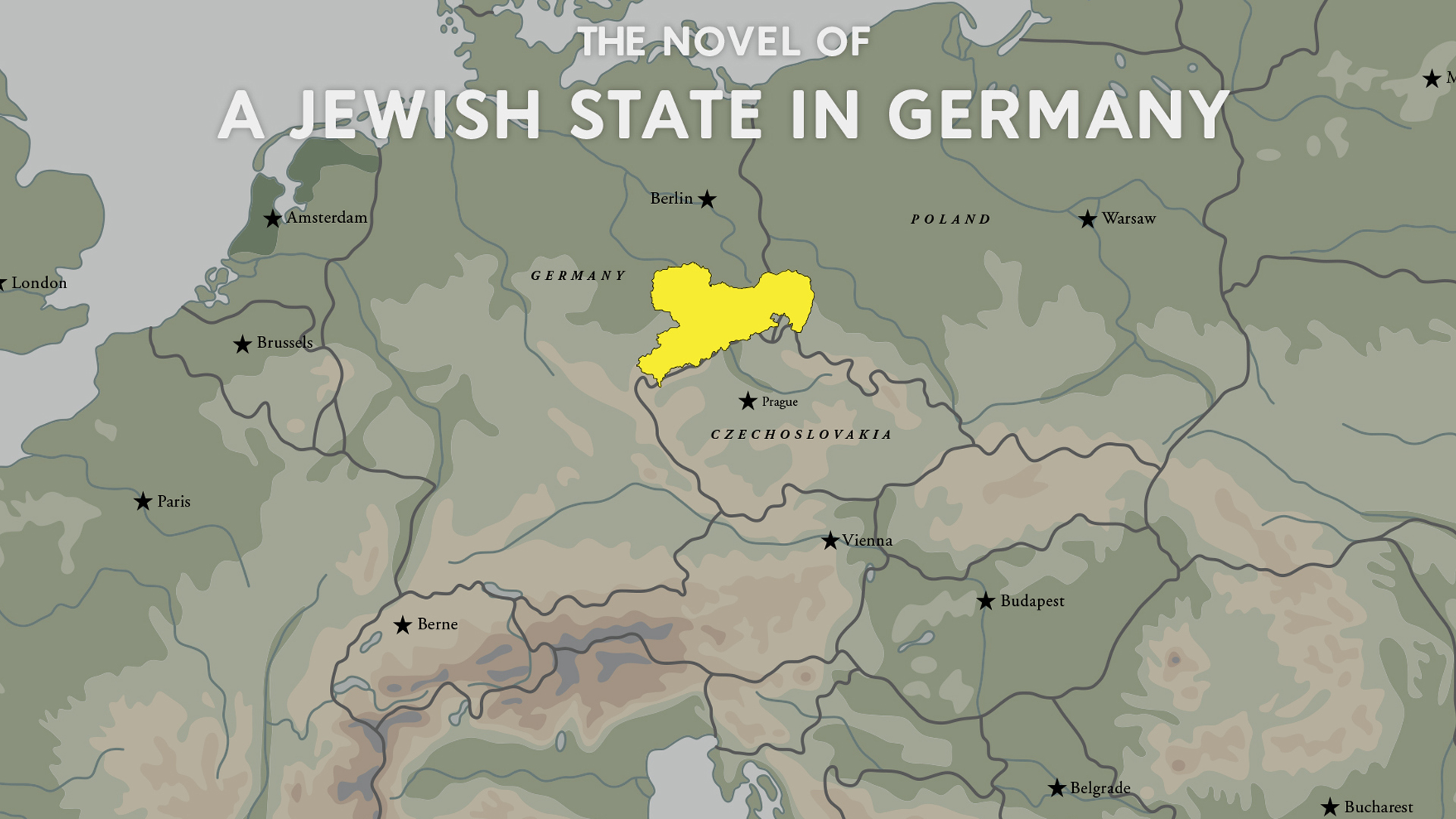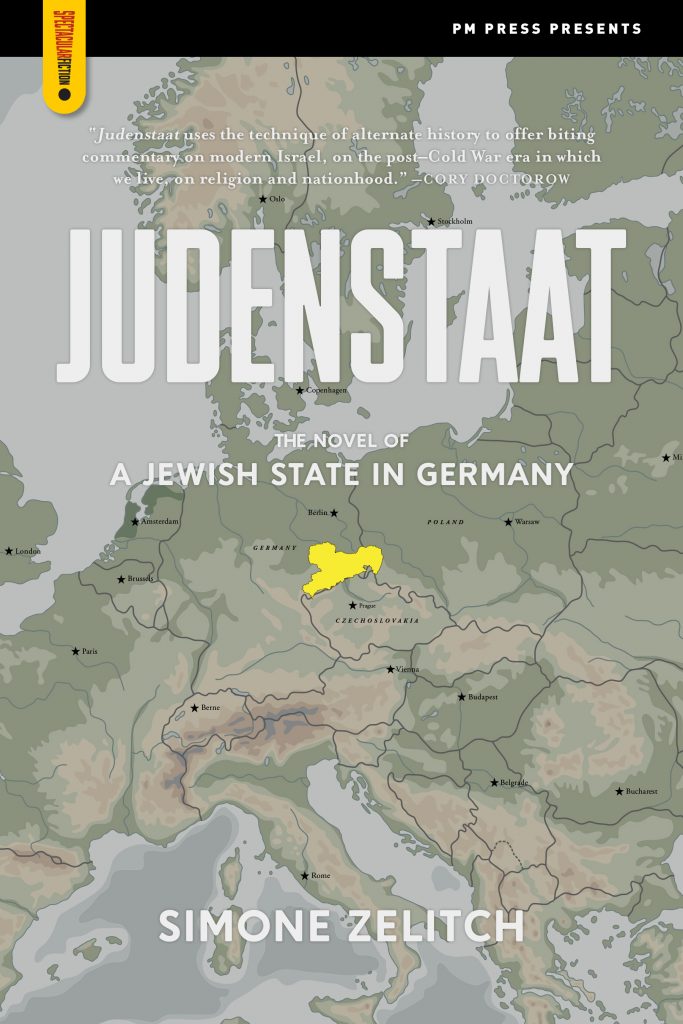By Molly Odintz
BookPeople/MysteryPeople
August 10th, 2016
I’ll admit it, I’ve been on a bit of an alternative history kick this year. Rather than continue watching the TV adaptation, I finally read The Man in the High Castle, and earlier this year, I read and raved about A Man Lies Dreaming, Lavie Tidhar’s brilliant send-off of Hitler as a disenfranchised German refugee working as a private detective in a world where Communists, rather than Fascists, win the German elections of 1933. Then I picked up Simone Zelitch’s Judenstaat, a brilliant and complex merging of the strange histories of Israel, East Germany, and Birodbidjan (Stalin’s bizarre attempt at a Soviet Jewish state).
Simone Zelitch’s novel Judenstaat is one of those rare fictional works that has content truly representative of the complexities of history. Many authors use history for inspiration; Zelitch feels the weight of history, its idiosyncrasies and its parallels. Even moreso, Zelitch understands the use of history. Judenstaat takes place in 1989, in an alternative history where post-WWII, the Soviet Union has created a Jewish state in the German region of Saxony, and therein allowed Jewish residents protection for their lives, but not their identity. Highly assimilated residents, terrified of being purged or sent to the east, have replaced continuation of culture with worship of the state. Those who wish to continue practicing Judaism traditionally are relegated to lumpenproletariat status and looked down upon in the novel as “blackhats.”
Historian Judit Klemmer, as the novel begins, continues work on a documentary of Judenstaat’s early days as the state’s 40th anniversary approaches. As she studies the state’s founding, including the mysterious disappearance of one of the state’s founders, she receives a mysterious note inspiring her to further investigate the murder of her husband, a talented Saxon conductor, a few years before. The more she looks into both her husband’s death and the birth of the state, the more she must elude state agents and question her own path. As Judit goes down the rabbit hole in pursuit of her husband’s killer, Judenstaat enters into murder mystery/espionage territory for one of the most multi-genre novels I’ve ever read.
As the novel follows Judit through her work and her quest, the reader becomes immersed in Zelitch’s complex re-imagining of history – every aspect of Zelitch’s alternative history is designed to be in conversation with real history, yet far enough removed to be more of a funhouse reflection; distorted, warped, and endlessly interpret-able. Those with a good knowledge of 20th century Jewish history will appreciate many of Zelitch’s references, such as the repurposed Jewish Bund installed as the puppet government of the Soviet Jewish state. For those wary of the historical bent to Zelitch’s novel, there’s still plenty of gripping content and beautiful writing to keep you fascinated, although I do recommend that anyone reading this book first read a bit about Birodbidjan, cause that is some weird history!
After reading Judenstaat, I’m planning to continue my alternative-histories-of-WWII-and-its-after-effects kick with Michael Chabon’s The Yiddish Policeman’s Union and Phillip Roth’s The Plot Against America. For those interested in additional works of alternative-history-cum-murder-mystery, check out Underground Airlines, by Ben Winters. For those looking for more novels to approach the traumas of history obliquely through visions of the past tailored to resonate with the present, try Colson Whitehead’s The Underground Railroad, a challenging and brilliant work, just released and already praised across the literary world. And for those who want their alternative history full of space lizards addicted to ginger, try out those Harry Turtledove books. What have you got to lose?
You can find copies of Judenstaat on our shelves and via bookpeople.com. Look out later today for an interview with the author!







